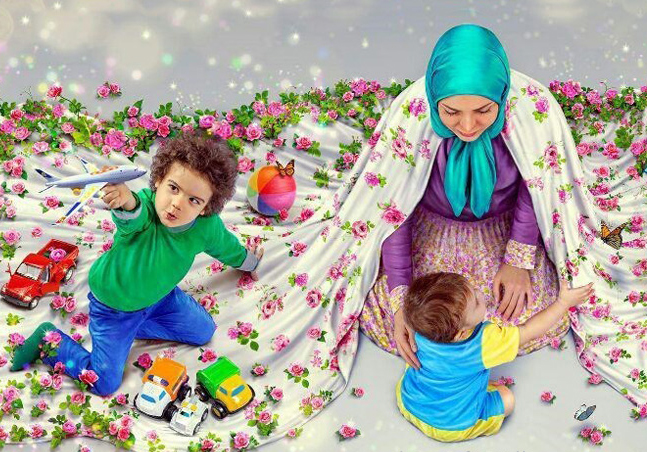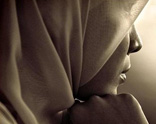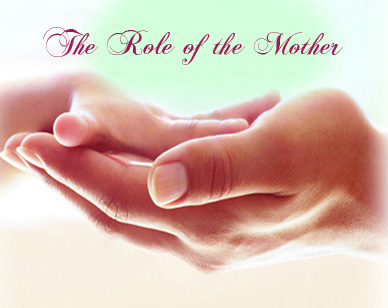Women in the Muslim Society
1- ABSTRACT
In the western society today there is a stereotypical belief that Islamic women are treated unequally and cruelly. The object of this report is to challenge this stereotype and the argument of gender equality within the Islamic Religion/Muslim society.
2- INTRODUCTION
The status of women in the Muslim society is neither a new issue nor a fully settled one. The position of Islam on this issue has been among the subjects presented to the Western reader with the least objectivity. This report is intended to provide a brief and authentic display of what Islam stands for in regard to women within their beliefs. The teachings of Islam are based essentially on the Qur'an (God's revelation) and Hadith (elaboration by Prophet Muhammad). The Qur'an and the Hadith provide the basic source of authentication for any position or view which is attributed to Islam. This report focuses on the position of Islam regarding the status of women in society.
3- WOMAN IN ISLAM
3.1- The Spiritual Aspect The Qur'an provides clear-cut evidence that woman is completely equated with man in the sight of God in terms of her rights and responsibilities. The Qur'an states: ﴾Every soul will be (held) in pledge for its deeds﴿ (Qur'an 74:38). It also states : ﴾... So their Lord accepted their prayers, (saying): I will not suffer to be lost the work of any of you whether male or female.﴿ You proceed one from another ...(Qur'an 3: 195). Women according to the Qur'an are not blamed for Adam's first mistake. Both were jointly wrong in their disobedience to God, both repented, and both were forgiven. (Qur'an 2:36, 7:20 - 24). In one verse in fact (20:121), Adam specifically, was blamed. In terms of religious obligations, such as the Daily Prayers, Fasting, Poor-due, and Pilgrimage, woman is no different from man. In some cases indeed, women have certain advantages over men. For example, the woman is exempted from the daily prayers and from fasting during her menstrual periods and forty days after childbirth. If the missed fasting is required, during the month of Ramadan, (Ramadan is a month of strict fasting and prayers, one of the Islamic sacraments) she can make up for the missed days whenever she can. She does not have to make up for the prayers missed for any of the above reasons. Although women can and did go into the mosque during the days of the prophet and thereafter attendance at the Friday congregational prayers is optional for them while it is compulsory for men (on Friday).
3.2. The Social Aspect
3.2.1 As a child and an adolescent
Despite the social acceptance of female death among some Arabian tribes, the Qur'an forbade this custom, and considered it a crime like any other murder. ﴾And when the female (infant) buried alive - is questioned, for what crime she was killed.﴿ (Qur'an 81:8-9). Criticizing the attitudes of such parents who reject their female children, the Qur'an states: When news is brought to one of them, of (the Birth of) a female (child), his face darkens and he is filled with inward grief! With shame does he hide himself from his people because of the bad news he has had! Shall he retain her on (sufferance) and contempt, or bury her in the dust? Ah! What an evil (choice) they decide on? (Qur'an 16: 58-59). Far from saving the girl's life so that she may later suffer injustice and inequality, Islam requires kind and just treatment for her.
3.2.2. As a wife:
The Qur'an clearly indicates that marriage is shared between the two halves of the society, and that its objectives, besides creating human life, are emotional well being and spiritual harmony. Its bases are love and mercy.
According to Islamic Law, women cannot be forced to marry anyone without their consent. Ibn Abbas (prophet) reported that a girl came to the Messenger of God, Muhammad (peace be upon him and his household), and she reported that her father had forced her to marry without her consent. The Messenger of God gave her the choice ... (between accepting the marriage or invalidating it).
The rules for married life in Islam are clear. Both have equal rights and claims on one another, except for one responsibility, that of leadership. This is a matter which is natural in any collective life and which is consistent with the nature of man. The Qur'an thus states:
﴾And they (women) have rights similar to those (of men) over them, and men are a degree above them.﴿ (Qur'an 2:228). Such a degree is Quiwana (maintenance and protection). This refers to that natural difference between the sexes, which entitles the weaker sex to protection. It implies no superiority or advantage before the law. Yet, a man's role of leadership in relation to his family does not mean he is boss over his wife. Islam emphasizes the importance of taking counsel and mutual agreement in family decisions. The Qur'an gives us an example: ﴾...If they (husband wife) desire to wean the child by mutual consent and (after) consultation, there is no blame on them...﴿ (Qur'an 2: 233). 4.2.3 As a mother Islam considers kindness to parents next to the worship of God. ﴾And we have enjoined upon man (to be good) to his parents: His mother bears him in weakness upon weakness...﴿ (Qur'an 31:14) Also, the Qur'an has a special recommendation for the good treatment of mothers: ﴾Your Lord has decreed that you worship none save Him, and that you be kind to your parents ...﴿ (Qur'an 17:23).
3.3. The Economic Aspect
Islam ordered a right of which woman was ruined both before Islam and after it (even as late as this century), the right of independent ownership. According to Islamic Law, a woman's right to her money, real estate, or other properties is fully acknowledged. This right undergoes no change whether she is single or married. She retains her full rights to buy, sell, mortgage or lease any or all her properties. It is nowhere suggested in the Law that a woman is a lesser simply because she is a female. It should also be taken into consideration that such right applies to her properties before and after marriage. With regard to the woman's right to seek employment it should be stated first that Islam regards her role in society as a mother and a wife as the most sacred and essential one. Such a noble and vital role, which largely shapes the future of nations, cannot be regarded as "doing nothing". However, there is no decree in Islam that forbids women from seeking employment whenever there is a necessity for it, especially in positions which fit her nature and in which society needs her most.
Examples of these professions are nursing, teaching (especially for children), and medicine. Also, there is no restriction on benefiting from a woman's talent in any field. Man in Islam is fully responsible for the maintenance of his wife, his children, and in some cases of his needy relatives, especially the females. This responsibility is neither waived nor reduced because of his wife's wealth or because of her access to any personal income gained from work, rent, profit, or any other legal means. Women on the other hand are far more secure financially and are far less burdened with any claims on her possessions. Her possessions before marriage do not transfer to her husband and she even keeps her maiden name and she has no obligation to spend on her family. If she is divorced, she may get alimony from her ex-husband.
An examination of the inheritance law within the Islamic Law reveals not only justice but also an abundance of compassion for women.
3.4. The Political Aspect
Any fair investigation of the teachings of Islam into the history of the Islamic civilization will surely find clear evidence of women's equality with men in political rights. This includes the right of election as well as women's right to participate in public affairs. Both in the Quran and in Islamic history we find examples of women who participated in serious discussions and argued even with the Prophet himself.
Mentioned in the Qur'an, it states that women are ineligible for the position of head of state. It is roughly translated: A people will not prosper if they let a woman be their leader. Muslims believe that this limitation, however, has nothing to do with the dignity of women or with her rights. It is rather related to the natural differences in the biological and psychological make-up of men and women. According to Islam, the head of the state is no mere figurehead. He leads people in the prayers, especially on Fridays and festivities; he is continuously engaged in the process of decision-making and the well being of his people. In agreement with the Muslims it is a medical fact that during their monthly periods and during their pregnancies, women undergo various physiological and psychological changes. Muslims believe that such changes may occur during an emergency situation, thus affecting her decision, without considering the excessive strain, which is produced.
Even in modern times, and in the most developed countries, it is rare to find a woman in the position of a head of state acting as more than a figurehead, a woman commander of the armed services, or even an equal number of women representatives in parliaments.
4- CONCLUSION
The first part of this report, the status of women in Islamic spiritual beliefs was briefly discussed. Emphasis in this part is placed on the original and authentic sources of Islam. This represents the standard according to which degree of Muslims can be judged. In summary throughout this report a few main points were apparent:
1- The history of Muslims is rich with women of great achievements in areas of life-from as early as the seventh century (BC).
2- It is impossible for anyone to justify any mistreatment of women by any ruling embodied in the Islamic Law, nor could anyone dare to cancel, reduce, or distort the clear-cut legal rights of women given in Islamic Law.
3- Throughout history, the reputation, purity and maternal role of Muslim women were objects of admiration by observers.




















